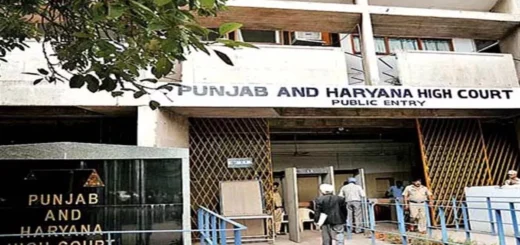The Supreme Court stated that a writ court should usually not change the facts found by a labor court unless there are strong reasons to do so.

The Supreme Court ruled that the Labour Court’s factual findings should generally not be changed by a Writ Court unless there are strong reasons. The Court overturned the Karnataka High Court’s decision and reinstated the award from the Central Government Industrial Tribunal-cum-Labour Court, which had ordered the Appellant’s reinstatement. The Appellant was dismissed by the Nuclear Power Corporation of India Limited (Respondent) due to claims that he had falsely obtained his job under a rehabilitation scheme for land-losers. Justices Hrishikesh Roy and S.V.N. Bhatti noted that the Labour Court had carefully considered the evidence before reaching its conclusion. They stated that the Writ Court should not alter the Labour Court’s factual findings without compelling reasons, which were not present in this case. Thus, they believed the Labour Court’s award in favor of the Appellant was wrongly overturned by the Single Judge.
Senior Advocate K. Parameshwar represented the Appellant, while Advocate Shrinkhla Tiwari represented the Respondent. The Appellant’s job was linked to his relationship as a family member of a land-loser whose land was taken for the Kaiga Atomic Power Project. He was married to the daughter of a land-loser, and a certificate confirming his status as the son-in-law was issued by the Special Land Acquisition Officer, which was used for his employment. Later, the Appellant filed for divorce under Section 13 of the Hindu Marriage Act (HMA), which was finalized by consent. During this time, the Appellant’s father-in-law made complaints claiming that the Appellant had misrepresented his status to get the job. Following these complaints, the employer issued a charge memo and terminated the Appellant’s employment after an inquiry.
The Appellant went to the Labour Court under the Industrial Disputes Act, 1947, to contest his termination. After reviewing the evidence, the Labour Court found the termination to be illegal and ordered the Appellant to be reinstated with full back wages, continuity of service, and other benefits. The Respondent then filed a Writ Petition in the Karnataka High Court, which overturned the Labour Court’s decision. The High Court claimed the Appellant had gained employment through false information and deemed the termination valid. The main question was whether the Appellant, as a family member of a land-loser, had legally obtained the job as the son-in-law of the land-loser.
The Supreme Court observed that the High Court’s conclusion was made without properly considering the divorce proceedings between the Appellant and his wife. The Bench also pointed out that the High Court ignored family details provided by the employer, which showed the Appellant had a wife. The Court noted, “The Ration Card also has the same family details of the appellant.” As a result, the Court decided, “This discussion leads us to conclude that the appellant is entitled to relief according to the Labour Court’s Award dated 09.08.2012, along with service benefits. However, granting back wages may not be appropriate. Therefore, it is clarified that the reinstated employee will not receive any back wages from 16.12.2020, when the learned Single Judge annulled the Award, until he is reinstated.” Thus, the Supreme Court granted the Appeal.
Cause Title: Ganapati Bhikarao Naik v. Nuclear Power Corporation Of India Limited (Neutral Citation: 2024 INSC 871)








